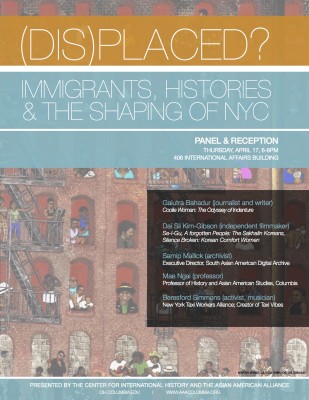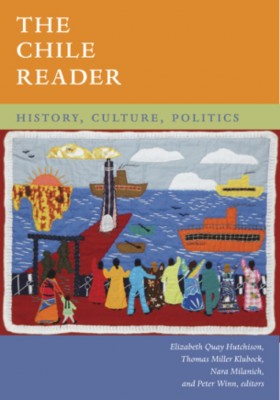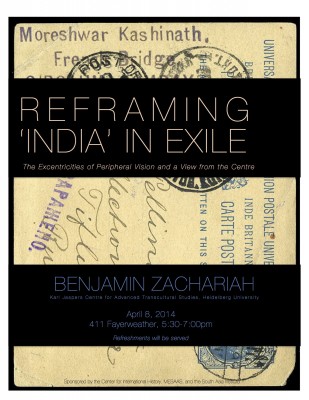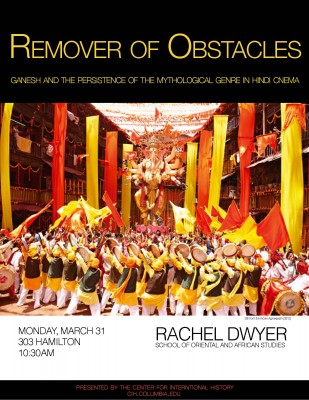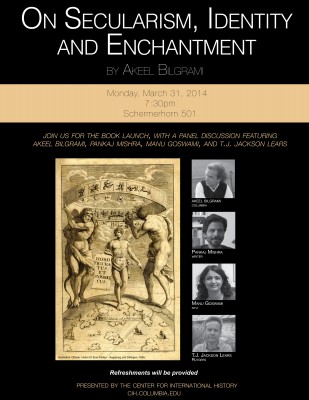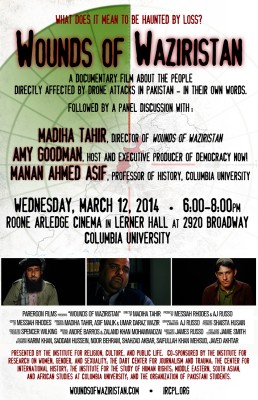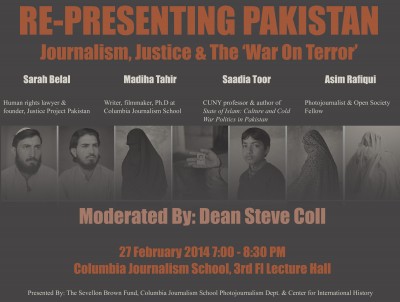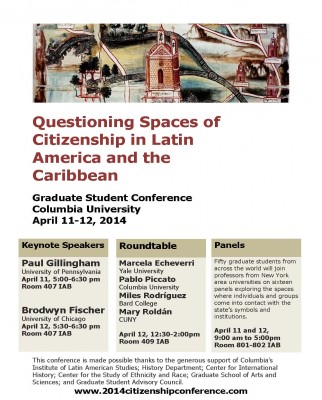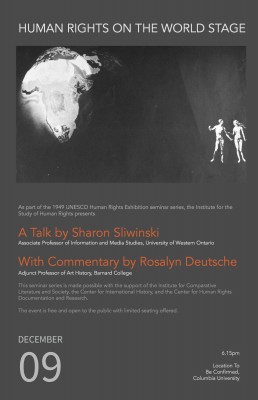A Panel discussion with Gaiutra Bahadur (journalist & writer), Dai Sil Kim-Gibson (independent filmmaker), Samip Mallick (archivist), Mae Ngai (professor, Columbia University), and Beresford Simmons (activist, musician)
- Gaiutra Bahadur, Journalist and Writer, Coolie Woman: The Odyssey of Indenture
- Dai Sil Kim-Gibson, Independent filmmaker, Sa-I-Gu, A Forgotten People: The Sakhalin Koreans,Silence Broken: Korean Comfort Women
- Samip Mallick, Executive Director, South Asian American Digital Archive
- Mae Ngai, Professor of History and Asian American Studies, Columbia University
- Beresford Simmons, New York Taxi Workers Alliance; Creator of Taxi Vibes
What is the place of history in the shaping of narratives in and about immigrant communities in New York City? Immigration is often told as a story that begins with rupture and ends with assimilation – of severing roots, and building new ties. Yet, so often in New York with an immigrant population of 3 million, there are a richer, more complex stories to be found, archived, and told. How do immigrant stories shape New York, the “majority-minority” city? Join the Center for International History for a panel discussion as we navigate the question of immigrant histories and the shaping of NYC — through film, through literature- academic, fictional and journalistic- through music, archiving, and activism.
